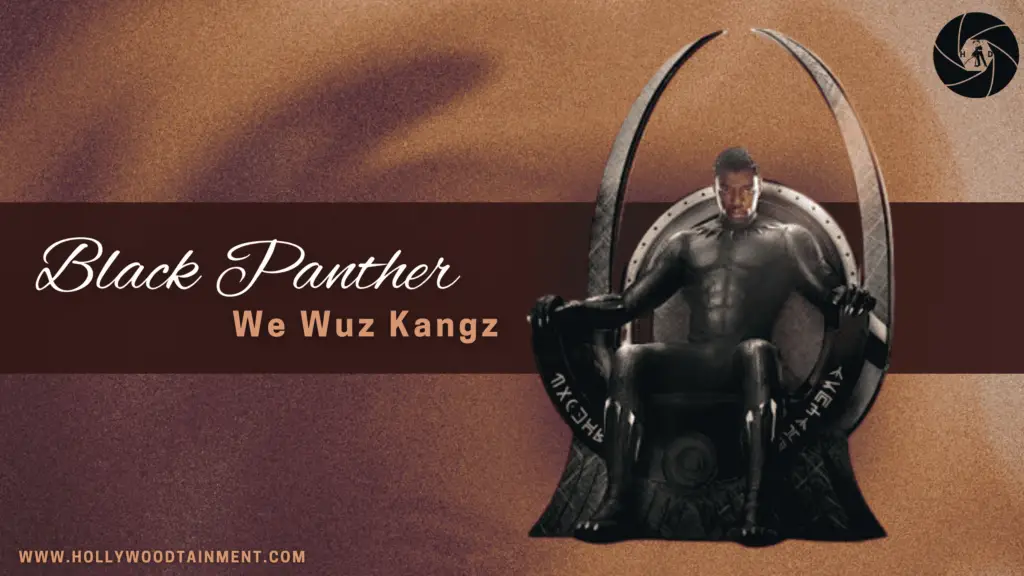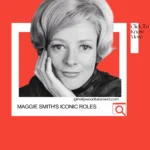Introduction
The term “We Wuz Kangz” has attracted attention, aroused interest, and caused both debate and controversy throughout the enormous terrain of pop culture and internet forums. This page analyses the history of this saying, how it relates to Marvel Comics, how it has influenced popular culture, and how it may be interpreted in a variety of ways.
The Origins of the Phrase “We Wuz Kangz”
A hilarious online meme that mocks Afrocentric historical revisionism is where the term “We Wuz Kangz” got its start. It satirically ridicules the notion that Africans formerly held positions of authority, stating that they were kings, queens, and forerunners of outstanding civilizations. The meme’s goal is to refute and critique excessive assertions about African history and to emphasize the necessity for historical accounts that are supported by facts.
Misinterpretations and Satire
Although the “We Wuz Kangz” meme was intended as a parody, some people have misread it and exploited it to spread racist and disparaging stereotypes. Misunderstandings and a bad connection with the term have resulted from this usage. It’s important to differentiate between the meme’s satirical roots and its twisted misinterpretations.
Marvel Comics and African Representation
Marvel Comics, which is renowned for its varied cast of superheroes, has made great advancements in its representation of African people and cultures. African presence in popular culture has become synonymous with figures like Storm and Black Panther. Marvel’s dedication to diversity has found favor with viewers all across the globe by providing good role models and dispelling misconceptions.
Impact on Popular Culture
Despite being divisive, the “We Wuz Kangz” meme has irrevocably altered popular culture. It has evolved into a catchphrase that is often used to jeer historical claims of grandeur, not just in reference to Africa but also in other settings. The meme’s effect permeates dialogues and debates in several facets of society beyond online forums.
Examining African History and Achievements
It is impossible to condense the complexity of African history and its contributions to civilization into a meme. A varied range of cultural achievements, including achievements in the arts, sciences, mathematics, and government, can be found across Africa. It is possible to have a more realistic grasp of African history and the importance of its accomplishments by looking beyond stereotypes.
Empowering Narratives and Positive Representation
It is crucial to tell uplifting stories that highlight the contributions and triumphs of marginalized populations. Positive representation in media, like the depiction of African characters in Marvel Comics, aids in eradicating negative stereotypes and cultivates a feeling of pride and belonging among varied viewers.
Challenges and Criticisms
The “We Wuz Kangz” meme seeks to refute exaggerated assertions, however, it has come under fire for perhaps maintaining unfavorable perceptions about Africa and its past. Some contend that the meme perpetuates a reductionist perception of African civilizations and ignores the immense complexity and variety found there. Discussions of historical and cultural narratives must be approached with complexity and refrain from being oversimplified or generalized.
Addressing the Complexity of History
History is a complex topic that calls for in-depth analysis and investigation. It is critical to recognize the bias, constrained sources, and predominance of certain viewpoints that affect historical narratives. A more thorough knowledge of history, one that includes other views and challenges preconceived beliefs, is possible when meaningful debate and an inclusive atmosphere are fostered.
The Responsibility of Content Creators
It is crucial for content producers to treat delicate subjects with respect and responsibility. Satire and humor may be useful weapons for criticism, but it’s important to think about the impact and unintended repercussions of our words and deeds. Working towards truth, empathy, and cultural awareness encourages a more open and fruitful dialogue on difficult subjects like history and representation.
Encouraging Diversity and Inclusion
The “We Wuz Kangz” meme has drawn attention to the value of diversity and inclusion in a narrative, despite its satirical roots. We can develop a more realistic and inclusive narrative that honors the contributions and accomplishments of other civilizations by embracing multiple viewpoints and forms of representation. We may develop empathy, compassion, and respect for our common humanity via these many tales.
Cultural Appreciation versus Cultural Appropriation
The difference between cultural appreciation and cultural appropriation is a topic that often comes up in conversations about cultural representation. Cultural appropriation refers to the adoption of aspects from a marginalized culture without sufficient knowledge or respect, while cultural appreciation is respectfully interacting with and learning from diverse cultures. Understanding the difference between the two facilitates discussions on cultural impact and encourages a more moral approach to cultural representation.
Embracing Nuanced Perspectives
Adopting nuanced viewpoints is necessary for navigating the complexity of history and representation. We may approach talks with an open mind if we recognize that history is complex and susceptible to interpretation. We may promote a more inclusive and accurate knowledge of historical narratives by actively seeking out other points of view and participating in polite discussion.
Is Deadpool Marvel Or DC? Unraveling The Comic Book Origins

What is the Relationship Between “We Wuz Kangz” and Black Panther?
Understanding “Black Panther”
Upon its premiere, the Marvel superhero movie “Black Panther” captivated audiences around. The film, which was directed by Ryan Coogler, showed the fictitious African country of Wakanda, which was shown as a highly developed and culturally rich culture ruled by the Black Panther. The movie celebrated Afrofuturism, Black culture, and the value of representation in popular culture.
Similarities and Connections
Although they come from different places, “We Wuz Kangz” and “Black Panther” have a lot in common. By recognizing the accomplishments and possibilities of Black people throughout history, both subvert dominant narratives. While “We Wuz Kangz” does this in a lighthearted way, “Black Panther” does it with a powerful story set in a fictional African country that celebrates Black brilliance and cultural heritage.
Influence on Popular Culture
It is impossible to overstate how “Black Panther” has influenced pop culture. The movie’s popularity dispelled long-held misconceptions about the feasibility of diverse superhero storylines, opening doors for other marginalized groups to be portrayed and given chances in Hollywood. It highlighted the value of varied storytelling and inspired a new generation of directors, performers, and viewers.
The film “We Wuz Kangz” also contributes to the transformation of popular culture by questioning Eurocentric historical interpretations. Although some individuals may find it contentious, it encourages discussions about the historical contributions and agency of Black people, fostering a deeper knowledge of the African diaspora.
Misinterpretations and Criticisms
Both “We Wuz Kangz” and “Black Panther” have come under fire and had their meanings misconstrued. Detractors claim that “We Wuz Kangz” promotes the false history and compromises reputable scholarly investigations. Similar to this, some detractors of “Black Panther” assert that it reinforces prejudices or misrepresents the variety of the African diaspora.
In order to avoid alienating or dismissing real academic work or different perspectives, it is critical to address these themes with delicacy. This is because they have the ability to start vital debates.
The Impact on Black Identity
Both “We Wuz Kangz” and “Black Panther” make unique contributions to developing Black identity. The humorous tone of the meme questions the historical narrative, which often undervalues or ignores African accomplishments. It aims to inspire pride and a sense of value in individuals of the African diaspora by proclaiming a strong and advanced African history. It presents a counter-narrative that affirms the agency and historical contributions of Black people.
The imaginary country of an advanced African state is shown in “Black Panther,” on the other hand. It has a broad ensemble of compelling, knowledgeable, and culturally varied people, providing Black viewers with excellent role models. The movie generates a feeling of empowerment as well as a shared vision of what a prosperous African society may entail.
The Importance of Representation
Representation matters, and “We Wuz Kangz” and “Black Panther” both highlight how important it is to see oneself accurately portrayed in history and the media. The achievements of persons of African heritage have often been ignored or misrepresented in dominant narratives throughout history. Both the meme and the movie counter this erasure by promoting African history and culture and helping to create a more inclusive narrative.
It fosters a feeling of belonging, pride, and opportunity when people can find accurate and varied depictions of themselves in popular culture. It challenges damaging prejudices and promotes the appreciation of many identities.
Empowering Narratives
The films “Black Panther” and “We Wuz Kangz” are part of a larger movement to reframe and reclaim narratives. They contest prevalent historical and cultural narratives that support marginalization and inequity. By promoting tales of African success and greatness, they provide opposing viewpoints that enable people and communities to confront current power systems.
These inspirational stories promote creativity, critical thinking, and a feeling of a cultural renaissance among people of African descent. They provide people a place to celebrate their past, build community, and serve as an example for younger generations.
The Role of Afrofuturism
Afrofuturism and the films “We Wuz Kangz” and “Black Panther” cross paths. In order to envision alternate worlds, Afrofuturism mixes aspects of science fiction, fantasy, and African culture. It tackles issues of identity, emancipation, and empowerment while often imagining a society in which people of African heritage are major players in determining their own futures.
By portraying an alternate history in which ancient African civilizations are honored for their accomplishments, “We Wuz Kangz” draws on Afrofuturism. With its embracing of Afrofuturist aesthetics, “Black Panther” presents a technologically sophisticated African nation that questions Eurocentric conventions.
Challenges and Opportunities
“We Wuz Kangz” and “Black Panther” both make important contributions, but they also have problems. It’s critical to conduct these dialogues with tact and respect for all viewpoints. It might be challenging to strike a balance between the necessity for historical accuracy and the goal for empowerment. Contextualizing these tales and advancing knowledge may be accomplished by participating in fruitful discussions and integrating academic research.
Embracing Cultural Heritage
Both “We Wuz Kangz” and “Black Panther” place a strong focus on accepting and appreciating cultural history, which is an important part of both films. They inspire people to learn about their history, research their ancestry, and take back stories that have been misrepresented or ignored. People of African origin may develop a feeling of pride and identity as well as a greater connection with their roots by embracing their cultural heritage.
Emphasizing Authenticity
Although “We Wuz Kangz” may have started as a meme, it emphasizes the value of authenticity in learning about the past. It exhorts people to challenge conventional wisdom and look for fresh viewpoints that emphasize the diversity and complexity of African cultures. The inclusion of varied perspectives and experiences in stories that are authentically told challenges the predominant narrative and fosters a more thorough grasp of history.
Similar to this, “Black Panther” emphasizes the value of accurate portrayal. The movie incorporates traditional clothing, dialects, and practices while drawing influence from many African nations. “Black Panther” promotes a feeling of pride and cultural respect by celebrating the variety and richness of African ancestry with attention to authenticity and detail.
Promoting Unity and Understanding
Both “We Wuz Kangz” and “Black Panther” have the ability to reduce divisions and promote community harmony. People of African ancestry foster conversation, empathy, and a better understanding of one another’s experiences by stressing their common historical and cultural background. These stories contest dividing narratives and provide chances for intercultural communication and cooperation.
In addition, the success of “Black Panther” and the internet debates around “We Wuz Kangz” have stoked interest in African history, culture, and identity. They have developed venues for people to conduct deep discussions, forge relationships, and erect barriers between various groups.
The similarities between “We Wuz Kangz” and “Black Panther” lay in their desire to upend established narratives, advance representation, and empower people of African heritage. While “We Wuz Kangz” takes a lighthearted and entertaining approach to the subject, “Black Panther” uses a fictitious story to produce an impactful and motivating portrayal of Black achievement. They both help to reshape popular culture, promote pride, and promote discussions about history, identity, and the value of representation.
Conclusion
The “We Wuz Kangz” meme, which was created as a parody of Afrocentric historical revisionism, has generated debates and conversations. While the meme emphasizes the necessity for historical narratives that are supported by data, it has also come under fire for possible misinterpretations and the reinforcement of unfavorable stereotypes. To develop a more inclusive and accurate knowledge of our shared past, polite and nuanced debates about history, representation, and cultural appreciation are essential.
What is the origin of the phrase “We Wuz Kangz”?
The phrase “We Wuz Kangz” originated from a humorous internet meme that parodies Afrocentric historical revisionism. It satirically mocks exaggerated claims about African history, highlighting the need for evidence-based narratives.
Does the “We Wuz Kangz” meme have any connection to Marvel Comics?
While the “We Wuz Kangz” meme gained attention in online communities, there is no direct connection between the meme and Marvel Comics. However, Marvel has made significant strides in representing African characters and cultures in their comics, such as Black Panther and Storm.
What impact has the “We Wuz Kangz” meme had on popular culture?
The “We Wuz Kangz” meme has left an indelible mark on popular culture. It has become a catchphrase used to mock claims of historical grandeur, not just in relation to Africa but also in various contexts. The meme’s influence extends beyond online platforms, permeating conversations and discussions in different spheres of society.
Is the “We Wuz Kangz” meme promoting racism?
The original intent of the “We Wuz Kangz” meme was satire, aimed at challenging exaggerated claims of African history. However, it has been misused by some individuals to propagate racist stereotypes. It is crucial to distinguish between the satirical origins of the meme and its distorted misinterpretations, which can perpetuate harmful narratives.
How can content creators address the complexities of history and representation?
Content creators have a responsibility to approach sensitive topics with respect and accuracy. Research, engage in diverse perspectives, and foster inclusive conversations. Strive to challenge stereotypes, promote empathy, and contribute to a more comprehensive and nuanced understanding of history and representation.
Are the claims made in “We Wuz Kangz” supported by historical evidence?
According to accepted historical accounts, the assertions in “We Wuz Kangz” are false. While it’s important to challenge historical narratives and look for other viewpoints, it’s as important to depend on reliable sources and academic study to have a thorough knowledge of history.
Does “Black Panther” accurately represent the diversity of the African diaspora?
The movie “Black Panther” has a varied cast of characters and presents a fictitious depiction of a technologically sophisticated African society. Even while it falls short of capturing the whole complexity of the African diaspora, it honors African culture and gives mainstream media themes that aren’t often heard a platform.
How has “Black Panther” influenced the film industry?
By shattering box office records and proving the economic feasibility of diverse storytelling, “Black Panther” has had a tremendous influence on the cinema industry. As a result of the movie’s popularity, underrepresented groups now have more possibilities and representation in Hollywood.
How can we engage in constructive conversations about “We Wuz Kangz” and “Black Panther”?
Active listening, empathy, and respect for all viewpoints are necessary for participating in productive dialogues. It is crucial to approach these debates with an open mind, look for trustworthy information, and take into account many points of view. We may increase our knowledge and encourage fruitful interactions by encouraging discourse.
How can individuals celebrate their cultural heritage?
By learning about their ancestry, becoming involved with history, and taking part in cultural activities, people may enjoy their cultural heritage. Embracing authenticity, taking advice from elders and community members, and passing on cultural knowledge to younger generations is crucial.






